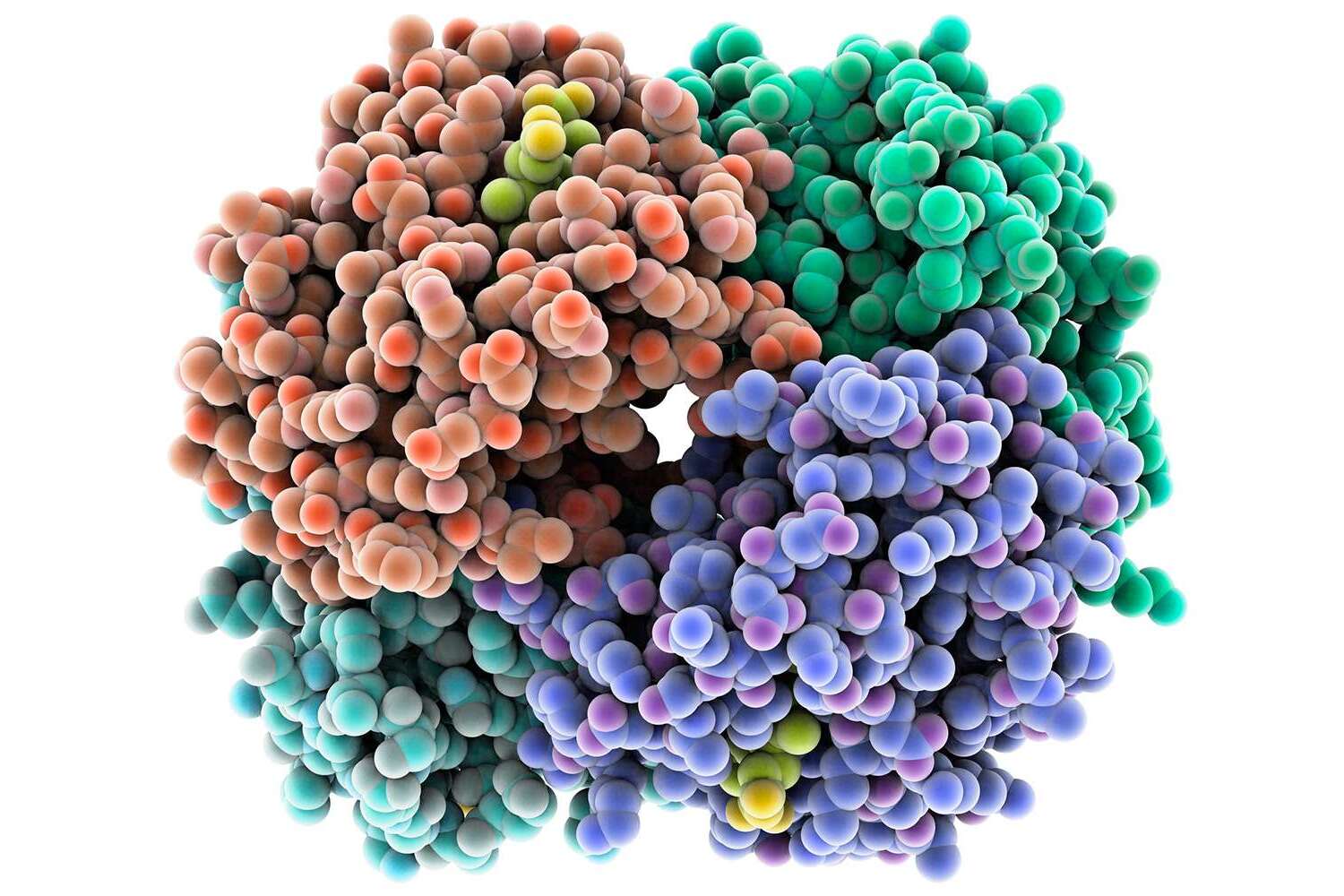
Proteins are the building blocks of life. They play crucial roles in almost every biological process. From repairing tissues to catalyzing metabolic reactions, proteins are indispensable. But what exactly do they do? Proteins function as enzymes, hormones, and antibodies. They transport molecules, provide structural support, and regulate genes. Without them, cells couldn't function properly. Imagine your body as a bustling city; proteins are the workers, machines, and infrastructure that keep everything running smoothly. Understanding their diverse roles can help you appreciate how vital they are to health and well-being. Ready to dive into the world of proteins? Let's explore 27 fascinating facts about their functions!
What is Protein?
Proteins are essential molecules found in every cell of the body. They play a crucial role in various biological processes. Here are some fascinating facts about protein functions that highlight their importance.
- Proteins are made up of amino acids, which are the building blocks of life.
- There are 20 different amino acids that combine to form proteins.
- The sequence of amino acids determines a protein's structure and function.
Protein Functions in the Body
Proteins perform a wide range of functions in the body, from structural support to catalyzing biochemical reactions. Let's explore some of these functions.
- Enzymes are proteins that speed up chemical reactions in the body.
- Hemoglobin, a protein in red blood cells, transports oxygen from the lungs to the rest of the body.
- Antibodies are proteins that help the immune system identify and neutralize foreign invaders like bacteria and viruses.
Structural Proteins
Structural proteins provide support and shape to cells and tissues. They are essential for maintaining the integrity of various body structures.
- Collagen is the most abundant protein in the human body, providing strength and structure to skin, bones, and connective tissues.
- Keratin is a protein found in hair, nails, and the outer layer of skin, giving them strength and resilience.
- Elastin is a protein that allows tissues like skin and blood vessels to stretch and return to their original shape.
Transport and Storage Proteins
Transport and storage proteins play a vital role in moving and storing molecules within the body.
- Albumin, a protein in blood plasma, helps maintain blood volume and pressure by regulating the balance of fluids.
- Ferritin is a protein that stores iron in the liver and releases it when needed.
- Myoglobin is a protein that stores oxygen in muscle cells, providing a reserve for when oxygen levels are low.
Regulatory Proteins
Regulatory proteins control various physiological processes, ensuring that the body functions smoothly.
- Insulin is a protein hormone that regulates blood sugar levels by facilitating the uptake of glucose into cells.
- Growth hormone is a protein that stimulates growth, cell reproduction, and cell regeneration.
- Transcription factors are proteins that help regulate gene expression by binding to specific DNA sequences.
Contractile Proteins
Contractile proteins are responsible for muscle contraction and movement. They play a crucial role in locomotion and other bodily functions.
- Actin and myosin are proteins that work together to enable muscle contraction.
- Tropomyosin is a protein that regulates the interaction between actin and myosin in muscle cells.
- Titin is a protein that helps maintain the structure and elasticity of muscle fibers.
Defensive Proteins
Defensive proteins protect the body from harmful pathogens and other threats. They are a key component of the immune system.
- Immunoglobulins, or antibodies, are proteins that recognize and neutralize foreign substances like bacteria and viruses.
- Complement proteins are part of the immune system that helps destroy pathogens by puncturing their cell membranes.
- C-reactive protein is a protein that increases in response to inflammation, helping to protect the body from infection.
Signaling Proteins
Signaling proteins facilitate communication between cells, ensuring that the body responds appropriately to various stimuli.
- Cytokines are proteins that mediate and regulate immune responses, inflammation, and cell growth.
- Receptors are proteins on the surface of cells that receive and transmit signals from other cells or the environment.
- G-proteins are involved in transmitting signals from receptors to target molecules inside the cell.
Protein Synthesis and Degradation
The body constantly synthesizes and degrades proteins to maintain proper function and respond to changing needs.
- Ribosomes are cellular structures that assemble amino acids into proteins based on genetic instructions.
- Proteasomes are protein complexes that degrade unneeded or damaged proteins, recycling their amino acids for new protein synthesis.
- Chaperone proteins assist in the proper folding of newly synthesized proteins, ensuring they achieve their correct functional shape.
The Power of Protein
Protein's role in our bodies is nothing short of amazing. From building muscles to supporting immune function, it’s a true multitasker. Without enough protein, our bodies can’t repair tissues or produce enzymes and hormones effectively.
Eating a variety of protein sources ensures you get all essential amino acids. Think lean meats, beans, nuts, and dairy. Even plant-based eaters can meet their protein needs with a bit of planning.
Remember, balance is key. Too much protein can strain kidneys and lead to other health issues. Moderation and variety keep things in check.
Understanding protein’s importance helps make better dietary choices. Whether you're an athlete or just want to stay healthy, protein is essential. So next time you plan a meal, give a nod to this vital nutrient. Your body will thank you!
Was this page helpful?
Our commitment to delivering trustworthy and engaging content is at the heart of what we do. Each fact on our site is contributed by real users like you, bringing a wealth of diverse insights and information. To ensure the highest standards of accuracy and reliability, our dedicated editors meticulously review each submission. This process guarantees that the facts we share are not only fascinating but also credible. Trust in our commitment to quality and authenticity as you explore and learn with us.


